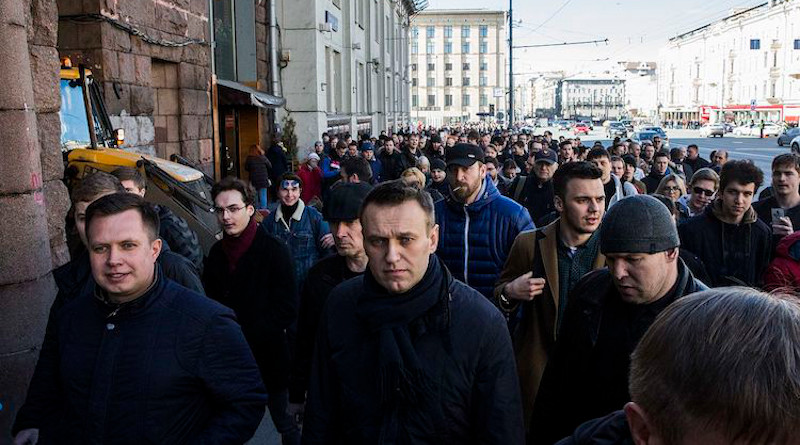By Forcing Navalny Abroad, Kremlin Has Marginalized Him And Thereby Won Important Victory – OpEd
By Paul Goble
This week marks the 100th day since the Russian powers poisoned opposition leader Aleksey Navalny and forced him to seek treatment in Germany, from which, despite some early indications to the contrary, he gives no sign of returning, Vladislav Inozemtsev says. And that gives the Kremlin a major victory.
For a decade, Navalny has been the only person not part of the official hierarchy ranked near the top of the media references; but since his poisoning, he has effectively disappeared. Russians did not protest against what was done to him, and they aren’t focusing on him the way they were, the Russian commentator says (echo.msk.ru/blog/v_inozemcev/2748646-echo/).
As a result, what looked like it would be a black eye for the Putin regime, with more sanctions and possible protests, has become a political victory, demonstrating that Moscow can isolate its opponents by forcing them to move abroad where they will have little or no influence on the situation in Russia itself.
The Putin regime and Navalny are incompatible, Inozemtsev says; and if the Kremlin wanted or wants to kill him, it will. Consequently, it is far better for Navalny to remain alive and well abroad rather than to risk being eliminated by returning to the Russia of Vladimir Putin. But the Russian opposition should reflect on what this means.
On the one hand, Navalny’s message is widely approved but has been weakened by pro-Kremlin media efforts that mean few Russians are going to take action to realize it. And on the other, Putin propaganda has been especially effective in portraying those abroad not as successful activists but as “failures” who should be ignored.
The message from the Kremlin now is: “we don’t need advice from abroad,” something that allows the powers that be to “destroy that link between the free global Russia and the ever more authoritarian one” inside the country. The forced exiling of Navalny only deepens the gulf between the two.
At present, Inozemtsev says, Navalny’s “’star’ is fading” and fading fast, yet another way in which Russia lags behind Belarus because the Russian government has broken the connection between those abroad and those at home while the Minsk rulers have failed in signal fashion to do the same.

